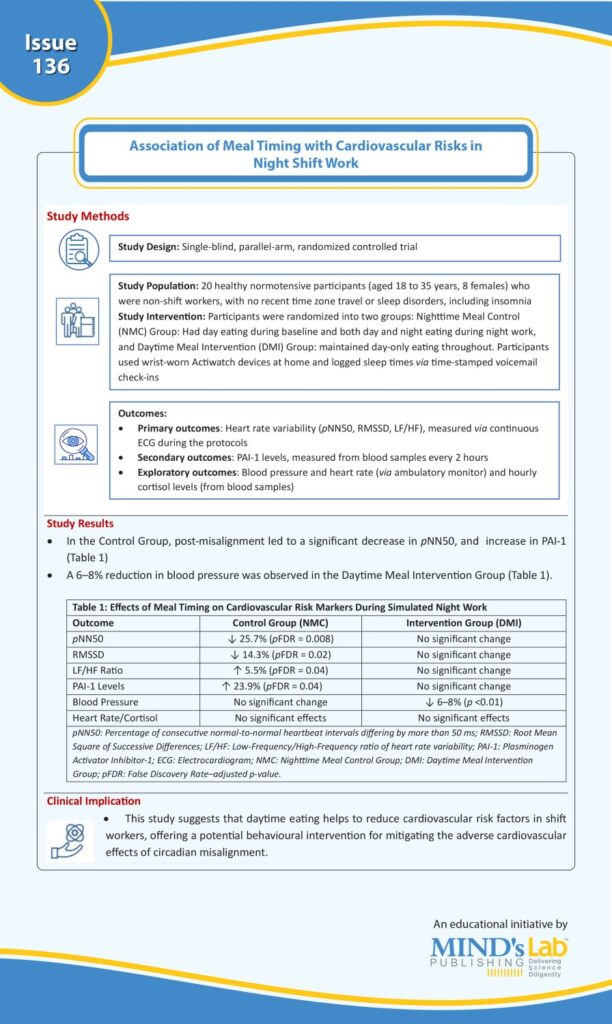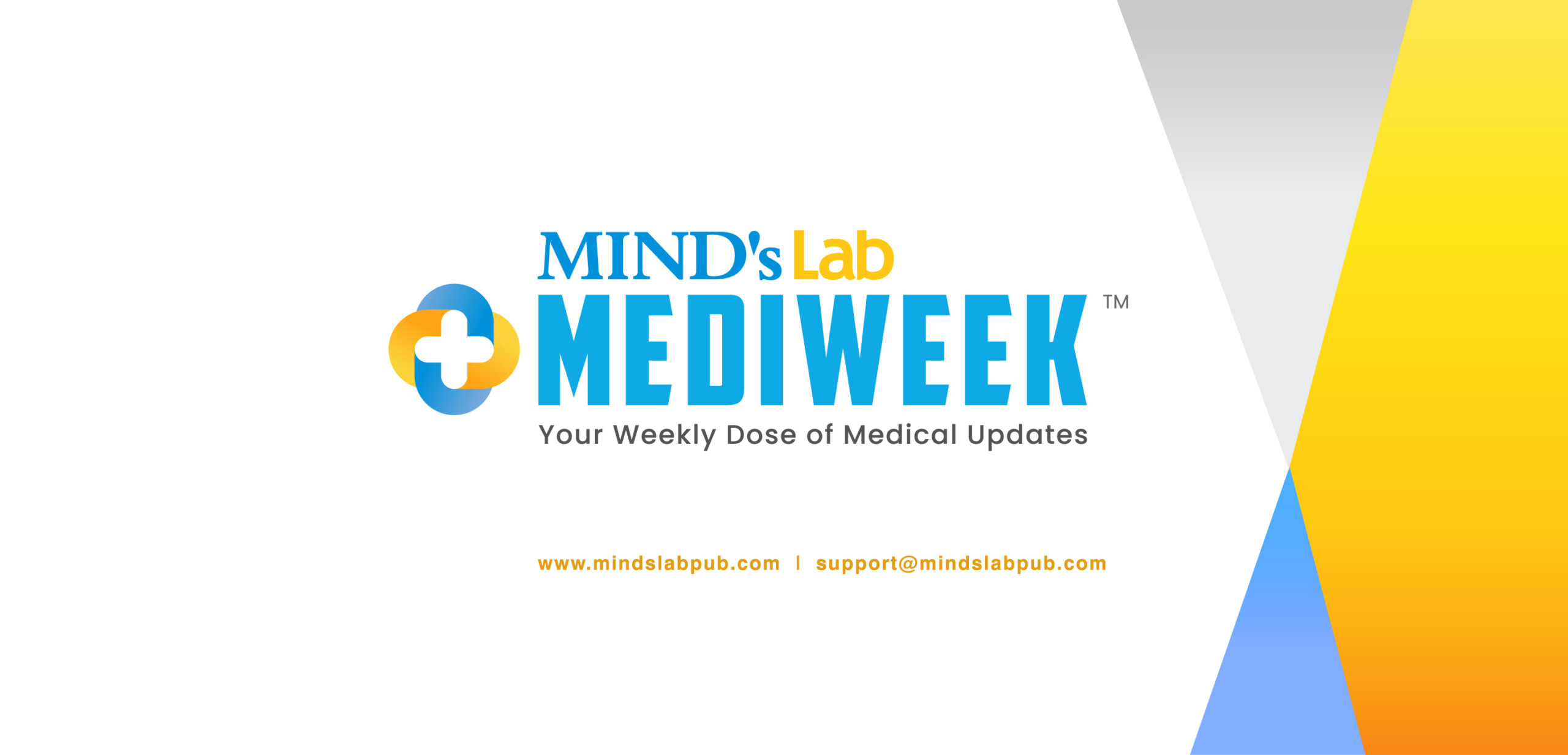
Shift work, prevalent in about 15% of the work-force in industrialized nations increases the risk of cardiovascular disease (CVD), partly due to circadian misalignment—disruption between the body’s internal clock and behavioral sleep/wake cycles. Controlled studies have shown that circadian misalignment raises the blood pressure and impairs cardiac vagal modulation.
Emerging evidence suggests that circadian misalignment is a key driver of increased cardiovascular risk in shift workers. Preclinical studies show that restricting food intake to the daytime supports cardiac health and delays cardiac aging. Aligning meals with the circadian rhythm may reduce CVD risk in shift workers, though more human research is needed to validate these strategies. Effective interventions are critical as shift work continues to be widespread.
A study by Chellappa SL et al., published in the journal “Nature Communications”, investigated whether aligning meal timing with the circadian rhythm could mitigate cardiovascular risk during simulated night work. In this single-blind, parallel-group, randomized study, 20 healthy adults were randomized to either a Nighttime Meal Control Group (i.e., meals consumed during night and day) or a Daytime Meal Intervention Group or (i.e., meals consumed only during daytime). Measures related to heart rate variability (pNN50, RMSSD, LF/HF ratio) and prothrombotic changes (PAI-1 levels) were evaluated at baseline and after the simulated night work (cicadian misalignment). In the Nighttime Meal Control Group, a decrease in pNN50 and RMSSD, and an increase in LF/HF ratio and PAI-1 levels were noted, which were not seen in the Daytime Meal Intervention Group. Thus nighttime and daytime eating was found to be associated with greater heart rate variability and prothrombotic changes. The study concluded that daytime eating, despite mistimed sleep, may reduce cardiovascular risks linked to circadian misalignment (See Graphic).

(Source: Chellappa SL, Gao L, Qian J, Vujovic N, Li P, Hu K, Scheer FAJL. Daytime eating during simulated night work mitigates changes in cardiovascular risk factors: Secondary analyses of a randomized controlled trial. Nat Commun. 2025;16(1):3186. Doi: 10.1038/s41467-025-57846-y)
